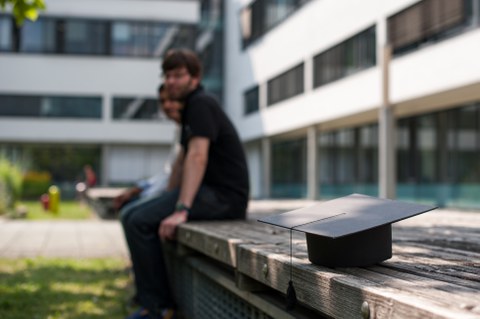Doing a doctorate at the TU Dresden

Promovieren an der TU Dresden
Welcome, and congratulations on considering or deciding to pursue a doctorate at TU Dresden! We are thrilled to hear about your interest and look forward to supporting you throughout the process.
The following web pages contain a wealth of information and valuable tips on pursuing a doctorate at TU Dresden. Our aim is to streamline the process of starting your doctorate and assist you in the best way possible.
You will also find this information in our Brochure “Doing a Doctorate at TU Dresden,” which is now available in your doctoral office or at central university offices.
- The doctorate consists of an independent and original achievement in research which contributes to gain knowledge in the respective discipline. Usually this is to be proofed by a monographic doctoral thesis. Within some disciplines, the cumulative dissertation (consisting of a series of individual publications) is becoming more and more accepted.
- The publication of the doctoral thesis is mandatory.
- An oral exam (usually the defense of the doctoral thesis) is part of the doctorate.
- An overall grade is awarded, differing on a scale between five categories: summa cum laude ("excellent"), magna cum laude ("very good"), cum laude ("good"), rite ("sufficient"), non sufficit ("non-sufficient").
- The universities keep right to award a doctorate, while the faculties are responsible for the doctoral regulations (Promotionsordnung) and procedures.
Generally, an academic degree on the level of master, Diplom, Staatsexamen, or Magister is required for enrolling as a doctoral candidate at a German university. Some doctoral regulations also allow for the possibility that particularly qualified Bachelor’s graduates as well as graduates of a university of applied sciences (Fachhochschule) can be admitted to doctoral studies. However, there aren’t any national regulations regarding these questions. Each faculty stipulates its doctoral regulations individually. If you have obtained your university degree abroad, the doctoral office of your Faculty in accordance with the International Office of TU Dresden assesses whether your university degree meets the requirements as defined in the respective Doctoral Regulations.
The following three ways of doing a doctorate at a German university exist:
- The individual doctorate, as an employee of the university or a non-university institute (either budget or third party funded) or a scholarship holder. This traditional way is still the most common one.
- An individual doctorate can also be pursuit as an external doctoral candidate. These are either employees at a company or organization outside academia or do their doctorate independently with own funding. This is the less common way to accomplish a doctorate in Germany.
- The structured doctorate at a graduate school or research training group is gaining importance in Germany: round about 25 percent of doctoral candidates are members of such a program (either as employees of the hosting organization or as scholarship holders).
Opportunities for doing a doctorate at the TU Dresden are offered by:
- the chairs of the 18 Faculties (advertisement of vacancies),
- the non-university research institutes in the Dresden region (advertisement of vacancies),
- within structured doctoral programs,
- as a bi-national doctorate.
Generally, a doctorate can be obtained in all disciplines of the TU Dresden. The denomination of the awarded doctoral degree differs according to the faculty.
At a certain point of the PhD project, most doctoral candidates have to face difficulties and challenges. You will find individual advice and information before, during and after the PhD here:
- Graduate Academy (advice and information related to the PhD phase across all disciplines)
- Doctoral Offices of the Faculties (Registration as a PhD student)
- International Office (enrolment as a doctoral candidate at the TU Dresden for international students)
- Welcome Center (assists international visiting researchers and PhD students staying for more than three months before and after their arrival to Dresden to facilitate their acclimatisation)
